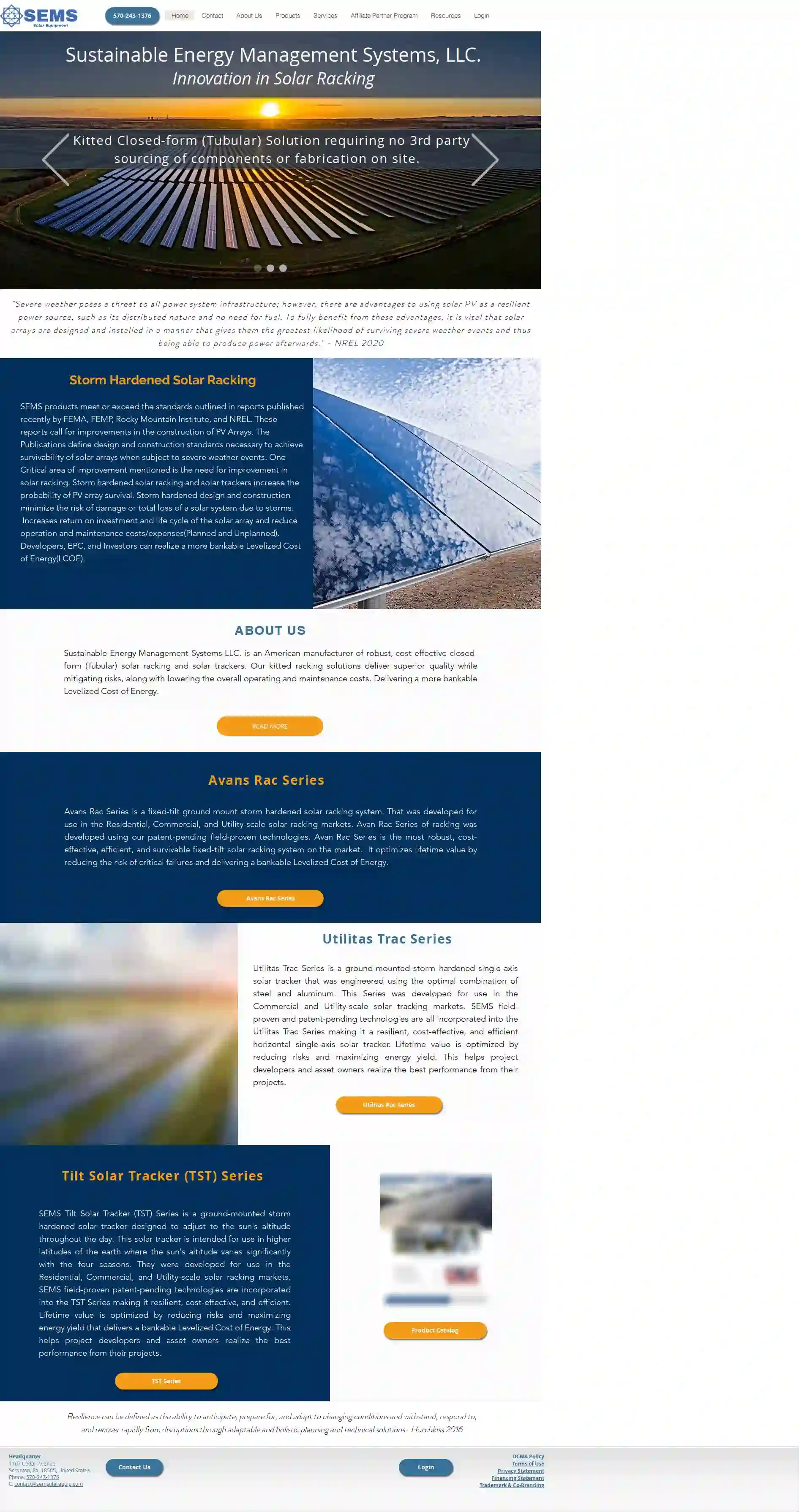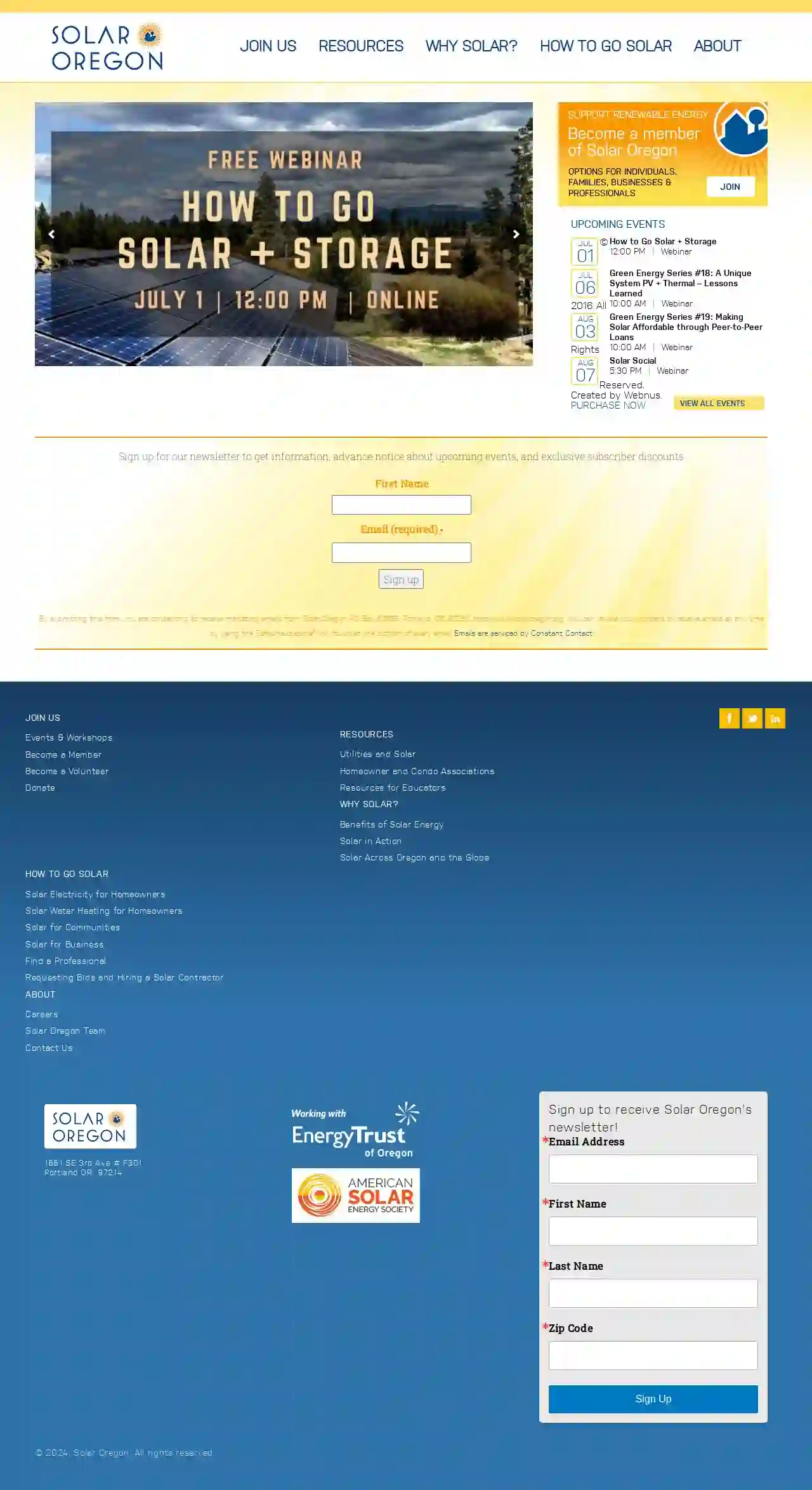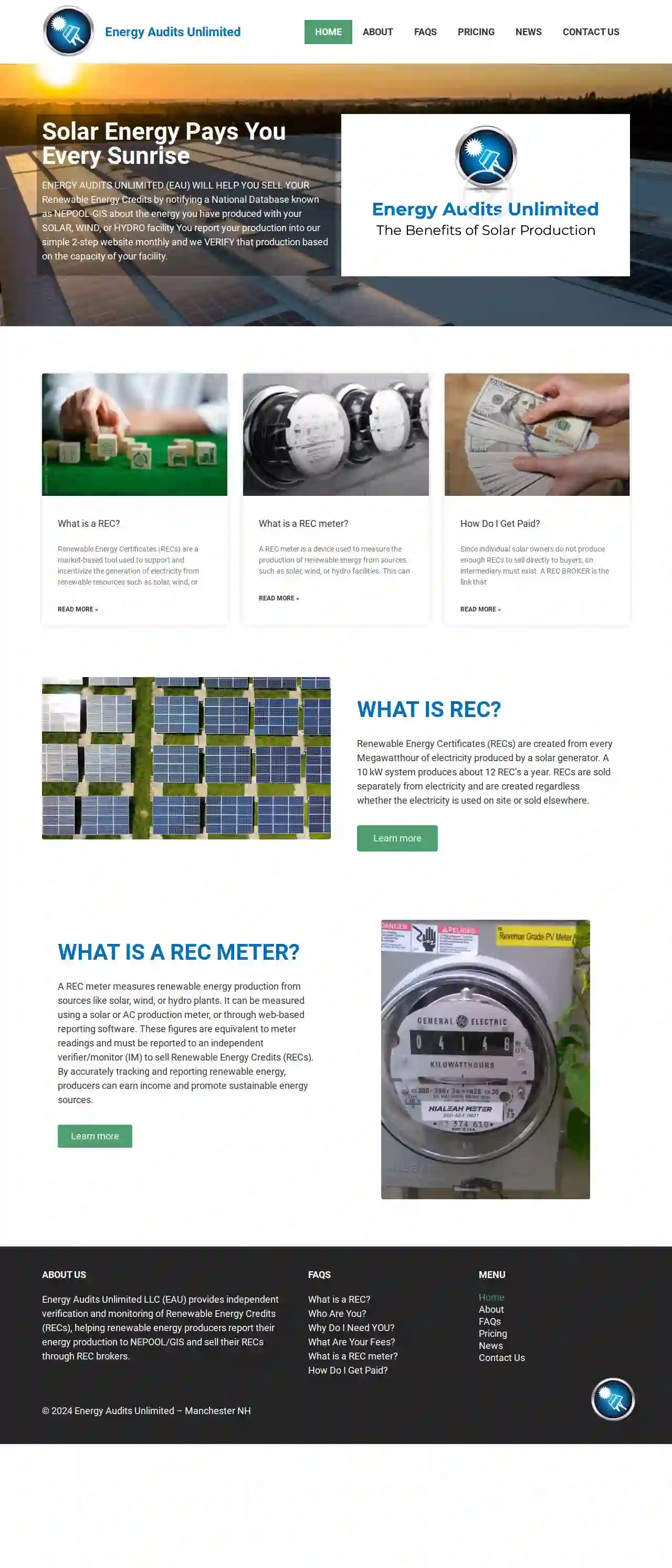Commercial Solar Installers Nashua
Find the best Commercial Solar Installers in Nashua
Get 3 FREE Solar Panels For Businesses quotes for your project today! Compare profiles, reviews, accreditations, portfolio, etc... and choose the best offer.

Insight Solar
4.983 reviews59C North Street, Hatfield, 01038, USInsight Energy is a leading provider of renewable energy solutions, offering a range of services including solar panel installation, financing, service and repair, and hydro power. With a focus on sustainability and energy independence, Insight Energy aims to make solar energy accessible and affordable for all. Their team of certified solar experts and elite technicians ensure that every solar system performs at its peak, providing customers with significant savings and a greener future.
- Services
- Why Us?
- Accreditations
- Our Team
- Testimonials
- Gallery
Get Quote
Reflective Solar Tracker
51 reviewsScranton, Pa, United States, 1107 Cedar Avenue, 18505, USSustainable Energy Management Systems LLC. is an American manufacturer of robust, cost-effective closed-form (Tubular) solar racking and solar trackers. Our kitted racking solutions deliver superior quality while mitigating risks, along with lowering the overall operating and maintenance costs/expenses(Planned and Unplanned). Developers, EPC, and Investors can realize a more bankable Levelized Cost of Energy.
- Services
- Why Us?
- Accreditations
- Our Team
- Testimonials
- Gallery
Get Quote
Solar Oregon
F301, Portland OR, 1661 SE 3rd Ave, Portland, 97214, USWelcome to Solar Oregon, a member-based 501(c)(3) nonprofit organization helping people with their solar journey since 1979. Our mission is to be a bold voice and trusted educational resource to empower all individuals and communities statewide to adopt solar energy.
- Services
- Why Us?
- Accreditations
- Our Team
- Testimonials
- Gallery
Get Quote
Smart Green Solar
4.6534 reviews123 Solar Way, Suite 101, Providence, 02860, USSmart Green Solar is a full-service solar provider in Rhode Island and Massachusetts. We design solar panel installations that meet your unique power needs and aesthetic preferences. We are equipped to educate you about the advantages of transitioning to green energy so that you can turn electrical power into a more affordable and predictable commodity in your home and budget.
- Services
- Why Us?
- Accreditations
- Our Team
- Testimonials
- Gallery
Get Quote
Solar RECs NH
Manchester, NH, USA, 123 Main St, 03101, USEnergy Audits Unlimited LLC (EAU) provides independent verification and monitoring of Renewable Energy Credits (RECs), helping renewable energy producers report their energy production to NEPOOL/GIS and sell their RECs through REC brokers.
- Services
- Why Us?
- Accreditations
- Our Team
- Testimonials
- Gallery
Get Quote- NH
NH Solar Choices, LLC
123 Solar Way, Suite 100, Beverly Hills, 90210, USNHSolarChoices is a leading provider of solar energy solutions, dedicated to helping individuals and businesses harness the power of the sun to reduce their energy costs and carbon footprint. With a team of experienced professionals and a commitment to quality, we offer a range of services including installation, maintenance, and consultation. Our mission is to make solar energy accessible and affordable for everyone, promoting a sustainable future for our planet.
- Services
- Why Us?
- Accreditations
- Our Team
- Testimonials
- Gallery
Get Quote 
Solar Ready
539 reviews123 Solar Street, Suite 100, Solar City, 12345, USSolar Ready is a family business dedicated to empowering customers in their decision to pursue energy independence. They believe in ethical business practices, treating customers, employees, and the environment with respect and integrity. Their mission is to provide transparency and communication throughout the solar journey, ensuring customers are fully informed about the costs, benefits, and impacts.
- Services
- Why Us?
- Accreditations
- Our Team
- Testimonials
- Gallery
Get Quote
Momentum Solar - Rhode Island
4.58 reviewsSouth Plainfield, NJ, 3096 Hamilton Blvd, Building B, 07080, USMomentum Solar is a trusted solar installer in the US, providing quality solar panels and home solar systems with battery backups to lower energy bills and produce your own energy. They offer solar financing plans and government rebates, and have over a decade of experience installing solar panels across the country.
- Services
- Why Us?
- Accreditations
- Our Team
- Testimonials
- Gallery
Get Quote
Sunup Solar
539 reviewsAuburn, NH, 03032, USSunup Solar is a local business dedicated to providing solar energy solutions to residents in Auburn, Manchester, NH, and Randolph, ME. They offer a range of services including solar panel installation, repairs, and maintenance, as well as battery backups and solar generators. Their mission is to make the transition to solar energy easy and cost-effective, with a focus on integrity and innovation. They are backed by Maxeon's 30-year manufacturer warranty on all their panels.
- Services
- Why Us?
- Accreditations
- Our Team
- Testimonials
- Gallery
Get Quote
Sunwatt Solar
4.962 reviewsSunwatt Solar, 123 Solar Way, Warwick, 02886, USSunwatt Solar is a full-service residential and small commercial solar installer serving all Rhode Island and Southeastern Massachusetts. We make going solar simple by taking on every aspect of the project, from initial site visit to post-installation monitoring. Sunwatt is committed to offering the best solar outcome to every customer.
- Services
- Why Us?
- Accreditations
- Our Team
- Testimonials
- Gallery
Get Quote
Over 4,210+ Solar Contractors onboarded
Our solar companies operate in Nashua and surrounding areas!
SolarCompaniesHub has curated and vetted the Best Solar Contractors arround Nashua. Find a reliable business today.
Frequently Asked Questions About Commercial Solar Installations
- High Energy Consumption: Businesses with significant electricity usage, such as manufacturing facilities, data centers, and large retail stores, can benefit greatly from the cost savings of solar.
- Large Roof Space: Businesses with ample roof space have the potential for larger solar installations, maximizing energy generation and financial returns.
- Available Land: Businesses with unused land can consider ground-mounted solar farms for larger-scale energy production.
- Long-Term Occupancy: Businesses planning to occupy their building for an extended period can maximize the long-term benefits and ROI of a solar investment.
- Sustainability Goals: Businesses committed to reducing their environmental impact can leverage solar to achieve their sustainability objectives.
- Panel Cleaning: Periodic cleaning of the panels removes dirt, debris, and bird droppings that can reduce energy production.
- Visual Inspections: Regularly inspect the system for signs of damage, loose wiring, or other issues.
- Inverter Monitoring: Monitor the inverter's performance and address any error codes or performance issues promptly.
- Vegetation Management: Trim trees and vegetation around the solar array to prevent shading, which can significantly reduce energy output.
- Professional Maintenance: It's recommended to have a professional solar installer or maintenance provider conduct a more thorough inspection and maintenance check every few years to identify potential problems and ensure optimal system performance.
What types of businesses are best suited for commercial solar?
What is involved in the maintenance of a commercial solar system?
Can I add battery storage to my commercial solar system later?
What is a net metering agreement, and why is it important?
What types of businesses are best suited for commercial solar?
- High Energy Consumption: Businesses with significant electricity usage, such as manufacturing facilities, data centers, and large retail stores, can benefit greatly from the cost savings of solar.
- Large Roof Space: Businesses with ample roof space have the potential for larger solar installations, maximizing energy generation and financial returns.
- Available Land: Businesses with unused land can consider ground-mounted solar farms for larger-scale energy production.
- Long-Term Occupancy: Businesses planning to occupy their building for an extended period can maximize the long-term benefits and ROI of a solar investment.
- Sustainability Goals: Businesses committed to reducing their environmental impact can leverage solar to achieve their sustainability objectives.
What is involved in the maintenance of a commercial solar system?
- Panel Cleaning: Periodic cleaning of the panels removes dirt, debris, and bird droppings that can reduce energy production.
- Visual Inspections: Regularly inspect the system for signs of damage, loose wiring, or other issues.
- Inverter Monitoring: Monitor the inverter's performance and address any error codes or performance issues promptly.
- Vegetation Management: Trim trees and vegetation around the solar array to prevent shading, which can significantly reduce energy output.
- Professional Maintenance: It's recommended to have a professional solar installer or maintenance provider conduct a more thorough inspection and maintenance check every few years to identify potential problems and ensure optimal system performance.